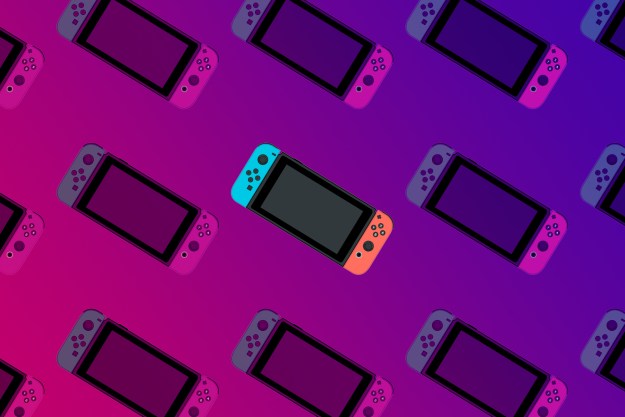True horror is something no human wants to experience. Few would actively want to throw themselves in a powerless position against some life-threatening situation or fearsome creature. Isn’t it much easier to watch these things through the TV screen with scary movies or auditory creepypastas? It’s through that outside curiosity that humanity has created so many ways to witness nightmares without having to really put ourselves through actual hell. And one of those ways is through video games, one of the most interactive and immersive ways to take terror trips in a much safer way.
But as an active hound for frights, I’ve always wondered, “Why?” Why do we enjoy taking steps out of our comfort zones into these demented realities? I love haunted houses even though I’m terrified of the giant out-of-this-world animatronics. Similarly, I love horror games even though I hate the unease of being powerless while being stalked by monstrous assailants. So what is it about our brains that makes us want to go beyond simply observing horror through film and instead become active participants through gaming? The answer lies in our psychology.
Recreational fear
There are several studies on the science of fear that suggest the sensation gives humans somewhat of a “natural high.” Our adrenaline rises, endorphins and dopamine are released, and we get hyped due to these short bursts of fright. That’s why games like Silent Hill have so much anticipation built into them. Much like waiting for Mr. X to appear and give it to us in Resident Evil 2, we have a build and then release of all these chemicals, and that gives us this huge payoff and rush that keeps us moving deeper into the shadows. Experiences such as that, going into haunted houses, or even riding rollercoasters are categorized as recreational fear, and that’s what horror author and psychologist Mathias Clasen is an expert on.

“I think it’s in our nature to find pleasure in what we’ve come to call recreational fear activities, that is, those kinds of activities that pleasantly scare us,” Clasen tells Digital Trends. “Horror is just a particularly intense kind of recreational fear. We evolved to find pleasure in playing with fear because we learn important things about ourselves and the world that way — what the dangers of the world are, how we respond to fear ourselves, and how we can cope with negative emotions such as fear and anxiety.”
That’s why horror has evolved into such a powerful genre throughout every medium and takes so many forms: It has always been a glimpse into the inner human psyche. It gives us a visual way to experience and confront our fears, insecurities, and sins. You can find that on display in horror classics like Silent Hill 2, a game that has protagonist James Sunderland dealing with the existential horror that he may be the worst monster of all.
You aren’t in real danger when you’re playing a horror game, and you know it.
Since their inception, horror games have thrown us into these emotional situations that we’ve never wanted to experience in the real world — on top of showcasing some grotesque creatures. The 1988 classic Splatterhouse is about killing monster after monster, but its most harrowing moment comes when the protagonist’s lover becomes another fiend to be destroyed. It plays at our emotions and shatters them, making it all more personal. A game doesn’t need to be a gory horror experience to pull that sensation off. Even a game like the peppy Earthbound translates the fears of childhood and growing up into a charming RPG. These games throw us into conflicts that we’d never put ourselves in willingly, allowing us to look inside ourselves and learn something new or cope with past trauma.
The horror sweet spot
For some, even that digital experience can be too real. Is there such a thing as too much immersion when dealing with such strong emotions? That’s where gaming’s latest technical evolution comes into play: VR horror games. The technology is still young, so it’s no surprise that VR horror titles haven’t drawn as much attention as franchises like Dead Space or Resident Evil yet. It may not just be about low headset adoption rates, though. Clasen posits that most players don’t want to get that close to their fears.
“You aren’t in real danger when you’re playing a horror game, and you know it,” Clasen says. “The moment you forget that — the moment you become so immersed that you forget it’s just a game — it stops being fun. It’s no longer playful, no longer recreational fear but real fear, and that’s not pleasant at all. I think that’s why VR horror games are a niche market. It’s simply too real for most people.”
That’s where psychologist Coltan Scrivner’s “horror sweet spot” comes into play. To him, the best experiences take careful planning to make sure there’s not too much or too little fear. Too much, and the terror eventually transcends recreational fear. Too little and it ends up being too boring. That’s why the best entries in the Resident Evil series are so masterful; the fear is always there, but it isn’t too strong. The third-person perspective makes them a little less personal than first-person games, yet you still feel a bit powerless along the way — at least during your first playthrough before you know where all the monsters are hiding.

In speaking with Scrivner and Clasen, it became clear why the zombie subgenre of horror is so popular in particular. As seen in The Last of Us, Telltale’s Walking Dead series, and even Resident Evil, the human element brings an endless wealth of emotional possibilities. All the while, zombies are constantly looming, which activates some primal senses as we stand on guard waiting for an attack. That creates an almost ultimate recreational fear experience.
“Zombies activate many aspects of our morbid curiosity,” Scrivner says. “Their rotting flesh taps into our curiosity about bodily injuries. Their predatory nature taps into our curiosity about violence and predators. And their nature — not quite dead and not quite alive — taps into our curiosity about the paranormal. So zombie horror usually has something for everyone.”
Zombies may be popular for a reason, but it doesn’t matter what subgenre you’re morbidly drawn to. All horror games pull on different strings in our brains. While so many gaming experiences attract players with positive feelings and rewards, horror stands as a fascinating outlier. We want to be scared. We want to be powerless. And through those seemingly negative experiences, we find something within ourselves that reminds us why we love the genre all over again every single time.
Editors' Recommendations
- Silent Hill 2 remake: release date window, trailers, gameplay, and more
- You can kill your 2023 backlog and prepare for Halloween with these 7 creepy games
- Konami’s big Silent Hill plans show how video game franchises are changing
- From Splatterhouse to Resident Evil, horror games found the fun in fear
- 9 terrifying horror games you can play on Xbox Game Pass this Halloween




